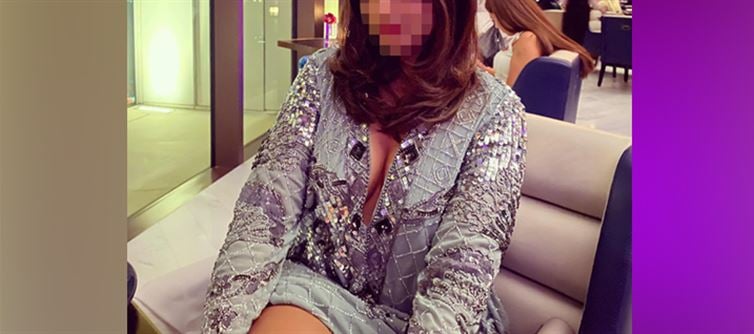
💔 love ISN’T TRENDING ANYMORE
Once upon a time, having a boyfriend was a social currency — the ultimate badge of desirability, emotional success, and stability. Fast forward to 2025, and that same badge now feels more like a burden.
In her british Vogue essay, “Is Having a Boyfriend Embarrassing Now?”, writer Chanté Joseph captures a seismic cultural shift: being single is no longer seen as a waiting room for love — it’s the destination itself. The internet’s most visible women are making quiet statements through silence, subtlety, and strategic cropping. The message? Romance might still be alive, but flaunting it is not.
📱 THE ERA OF THE SOFT (OR NO) LAUNCH
love used to live loudly online — anniversary reels, airport hugs, and hard-launch selfies. Now? It’s all about mystery, minimalism, and micro-hints.
Joseph notes how modern women avoid the “hard launch” of boyfriends — instead posting just a hand on the steering wheel, a blurred jawline, or a shadow in a mirror. The aesthetic is intentional. The subtext? “Yes, I have someone — but no, he doesn’t define me.”
It’s part rebellion, part self-preservation. Because in an era where followers matter more than ever, oversharing love can cost you your audience.
👑 SINGLE IS THE NEW STATUS SYMBOL
The romantic tables have turned. Where being in a relationship once signaled success, now it’s singleness that screams confidence, freedom, and control.
Joseph describes how young women view relationships — especially heterosexual ones — as potential “aura killers.” Being seen as too attached, too in love, or too available risks puncturing the illusion of power.
It’s not bitterness — it’s branding.
The modern woman doesn’t need a boyfriend to validate her desirability. She is the prize, the main character, and the headline — not the plus-one.
🧿 FEAR, SUPERSTITION & SELF-PROTECTION
But beneath the aesthetics lies something more ancient — superstition. Many women admit they hide their partners out of fear of the “evil eye.” The logic is simple: what’s seen can be envied, and what’s envied can be destroyed.
Others, like Nikki — a woman Joseph quotes who avoided posting about her 12-year relationship — say it’s about privacy and self-protection. After all, in an age where breakups go viral, it’s easier to say nothing than to issue a wallet PLATFORM' target='_blank' title='digital-Latest Updates, Photos, Videos are a click away, CLICK NOW'>digital press release when love ends.
The internet forgets nothing — and that permanence makes discretion the new luxury.
💣 THE POLITICIZATION OF HETEROSEXUALITY
Here’s where it gets explosive.
Joseph points out that even straight women are now questioning the politics of their own love lives. The act of dating a man has, bizarrely, become ideological — viewed by some as aligning with patriarchal norms, privilege, or outdated gender roles.
On social media, this manifests as mockery. “Having a boyfriend is so Republican,” one viral post reads. Another brand's straight relationships as “spiritually Israeli.” The exaggeration hides a deeper truth — for many young women, heterosexual love feels politically complicated, even performatively regressive.
🎙️ INFLUENCERS & THE IRONY OF PERFORMATIVE SINGLEHOOD
What’s fascinating, Joseph observes, is that even women in relationships publicly join the “boyfriend slander” trend. Influencers on podcasts like Delusional Diaries call having a boyfriend “lame” — while privately posting romantic stories to their close friends’ lists.
It’s a bizarre duality: women mocking what they themselves have, performing detachment for social capital. Because in the influencer economy, relatability sells — and being “too loved-up” alienates followers.
love becomes both the secret and the spectacle.
🌍 SOCIAL MEDIA: WHERE FEMINISM MEETS BRANDING
This isn’t just about romance — it’s about identity economics.
Social media turned personalities into brands, and in that world, being single is an asset. Independence photographs better than devotion. Self-focus generates engagement.
Joseph ties this shift to modern feminism — a rebellion against the narrative that a woman’s worth peaks with partnership. Today’s women are rebranding their solitude as strength.
And while older generations see this as cynical, Gen Z sees it as clarity. They’re not anti-love — they’re anti-losing-themselves in it.
⚡️ BOTTOM LINE: love IS PRIVATE, IMAGE IS PUBLIC
In a culture obsessed with optics, even love has become a PR exercise. The modern woman isn’t embarrassed by having a boyfriend — she’s just done performing the fantasy.
Romance hasn’t died; it’s gone underground — quiet, deliberate, and shielded from the chaos of the feed.
Because in 2025, the ultimate power move isn’t the hard launch.
It’s the quiet love no one gets to screenshot.




 click and follow Indiaherald WhatsApp channel
click and follow Indiaherald WhatsApp channel